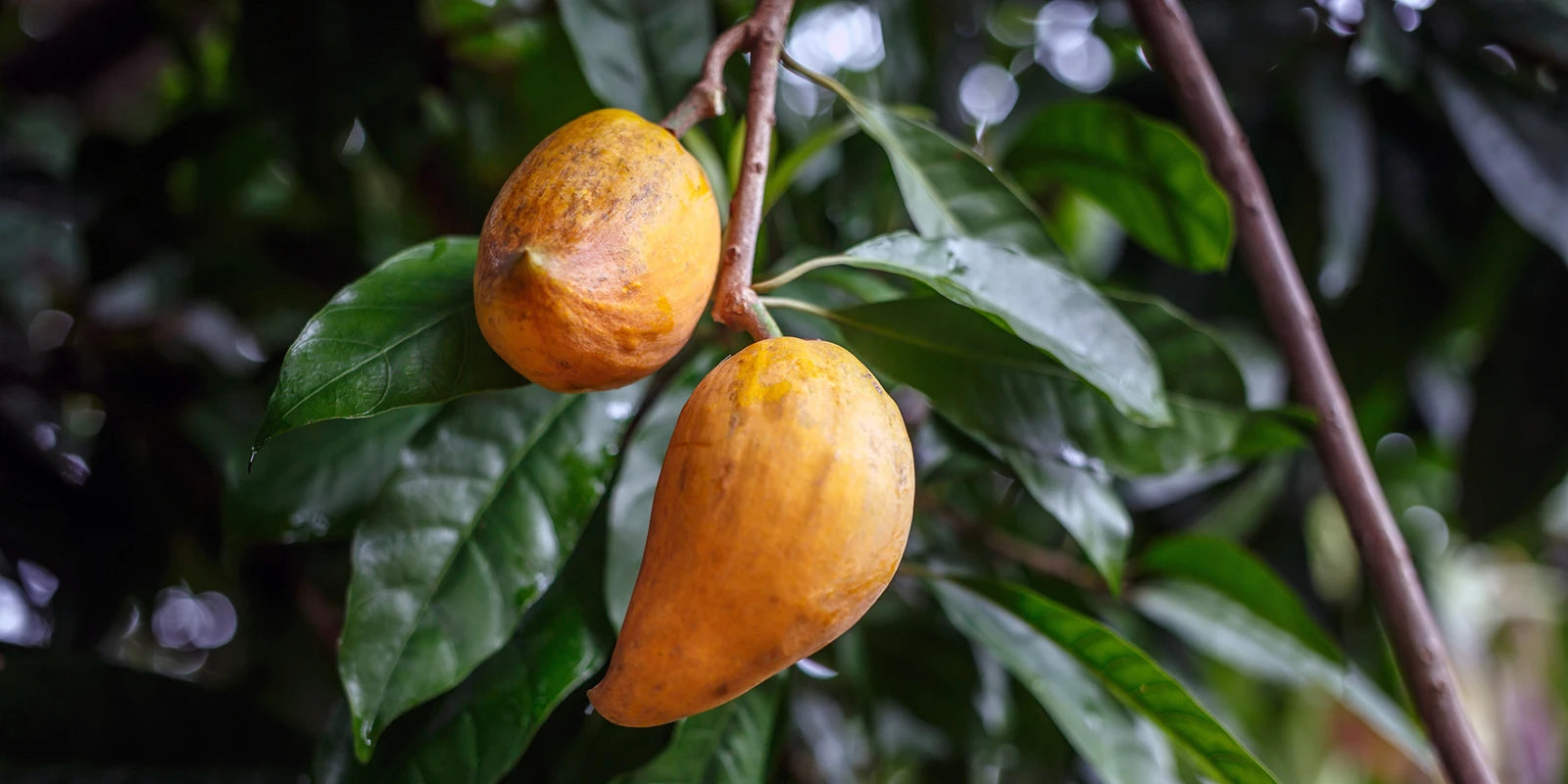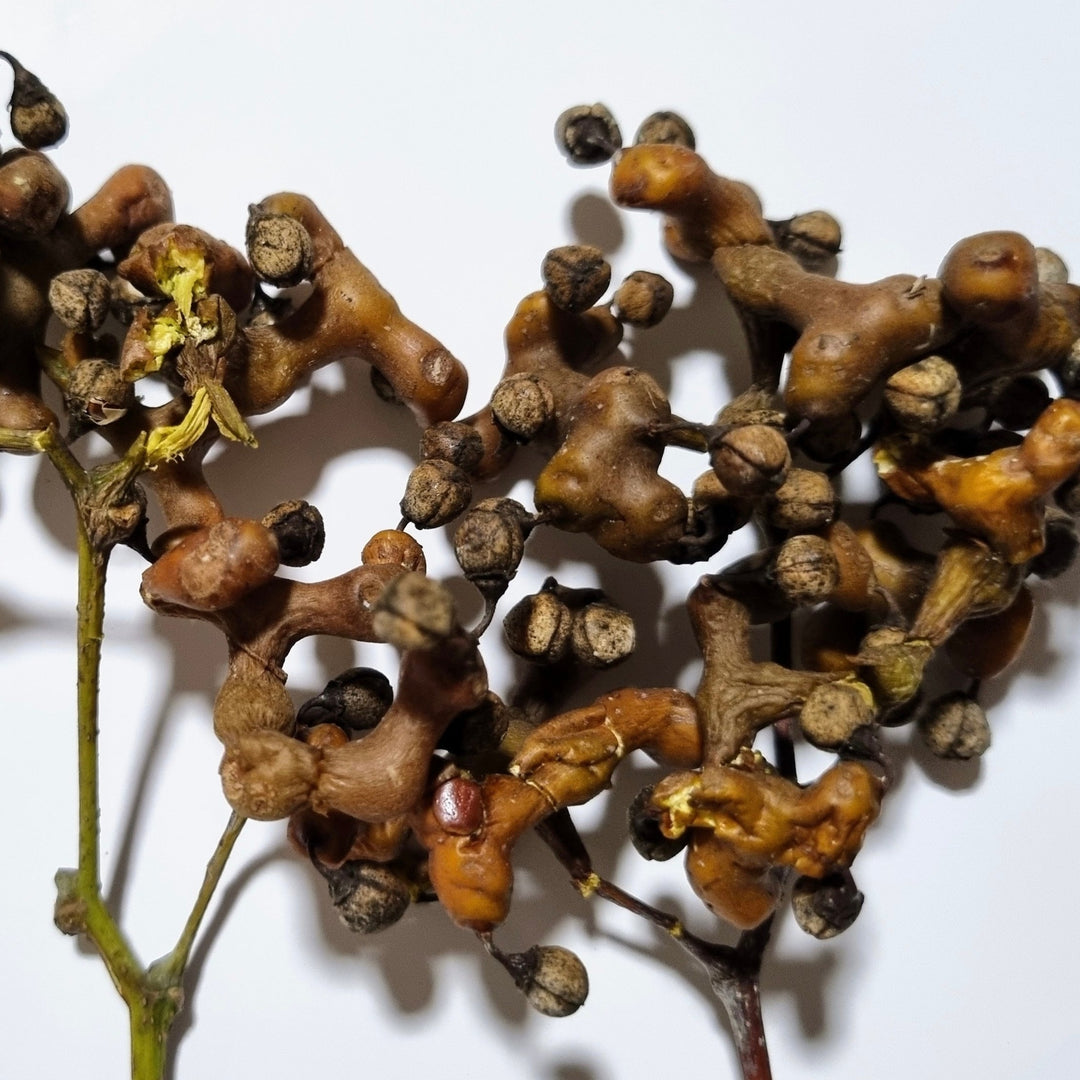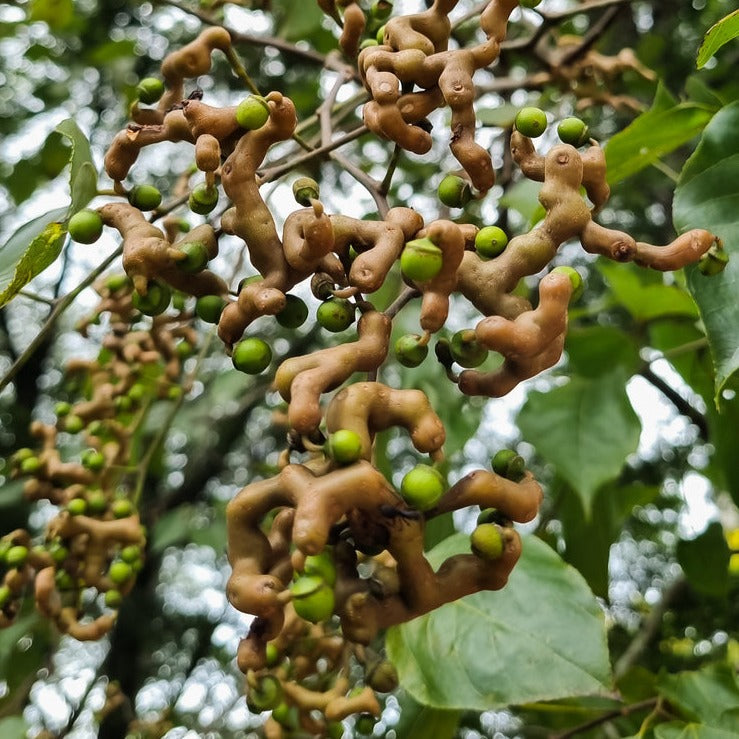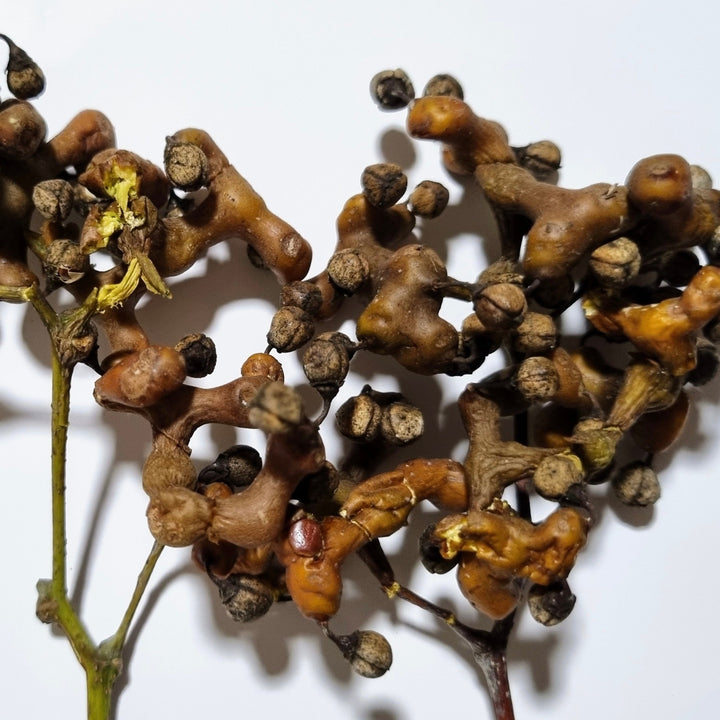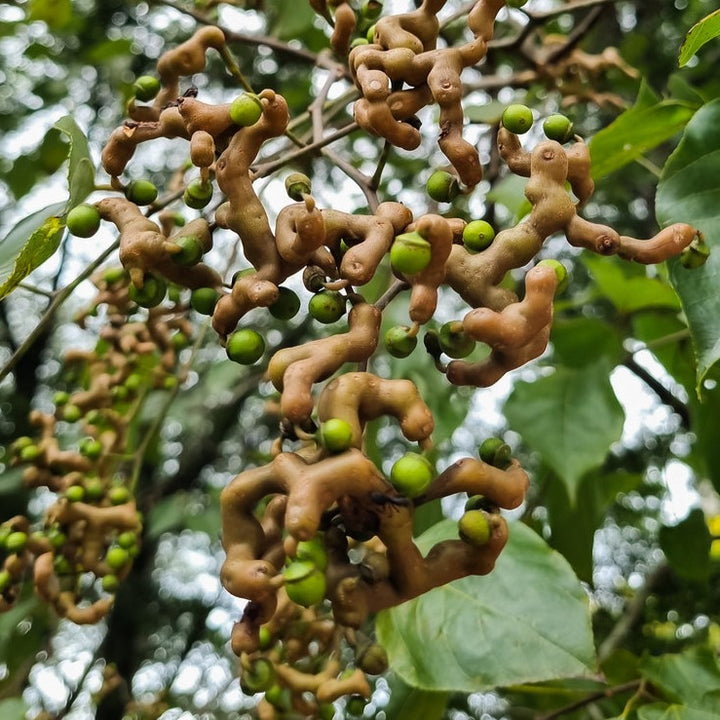Japanese Raisin Plant
Japanese Raisin (Hovenia Dulcis)
The Japanese raisin plant, scientifically known as Hovenia dulcis, is a botanical wonder that commands admiration for its graceful presence and remarkable attributes. It stands as a deciduous tree with an air of elegance, its branches adorned with lush, dark green leaves that rustle gently in the breeze.
As the seasons transition, the Japanese raisin plant undergoes a breathtaking transformation. In spring, delicate clusters of small, green flowers emerge, painting the tree with a subtle charm. These blossoms, like nature's work of art, later give way to the formation of the fruit.
The fruit itself is a spectacle to behold. Small and spherical, it begins as a vibrant green before maturing into a deep, rich shade of brown, resembling the very raisins it is named after. The plant's autonomy shines through in its ability to produce these small, raisin-like fruits without the need for complex pollination processes.
This fruit holds an intriguing blend of flavors and aromas. When you take a bite, its initial taste is mildly sweet, reminiscent of raisins, which gives it its colloquial name. Yet, it swiftly unfolds into a complex medley of notes, offering a tantalizing mix of tartness and hints of citrus. Each bite is a journey of taste, evoking the essence of a Japanese garden in full bloom.
Beyond its aesthetic appeal, the Japanese raisin plant holds a special place in traditional medicine, where its extracts have been used for their potential health benefits. This plant, with its beauty and utility, is a symbol of nature's wisdom and resilience, and it continues to captivate those who encounter it with its quiet grace and hidden treasures.
Plants are about 1.4m-2m tall. Some would need to be cut to size to fit in our box.
Plant Care
- Soil: Prefers well-drained loamy or sandy soil. Tolerant of a range of soil types but performs best in neutral to slightly alkaline conditions.
- Watering: Requires moderate watering, but established trees are relatively drought-tolerant. Ensure the soil does not become waterlogged.
- Temperature: Grows well in temperate climates and can tolerate temperatures down to about -20°C. However, it requires some protection or careful siting in areas with harsh winters.
- Light: Thrives in full sun to partial shade
- Fertilising: Use a balanced fertiliser with an NPK ratio of 10-10-10 or similar during the growing season to promote healthy growth and fruit production.
- Pruning: Prune in late winter or early spring to remove dead or overcrowded branches, enhance shape, and improve air circulation within the canopy.
- Mulching: Apply a layer of organic mulch around the base to help retain soil moisture, suppress weeds, and provide nutrients as it decomposes. Avoid piling mulch against the trunk to prevent rot.
- Flowering & Fruiting: Typically flowers in early summer with fruit maturation by late summer or early autumn. The tree may take several years to begin producing fruit.
- Potting: If growing in pots, use a large container with ample drainage holes. Repot every few years to refresh the soil and accommodate growing roots.
- Fertilising Regime: Apply a general-purpose fertiliser in early spring and again in mid-summer. Adjust the frequency and amount of fertiliser based on the tree's growth and soil fertility. Over-fertilising can lead to poor fruit quality and excessive foliage growth.
We ship our plants and garden supplies throughout New Zealand. Due to the increased costs of shipping and packaging, we now apply a minimal delivery charge. After offering free shipping for three consecutive years, we find it necessary to adjust this policy to align with current market conditions. However, we have lowered our prices to help offset this change.
Please note, we do not ship plants or garden supplies internationally from New Zealand. We do export plants and tissue culture materials from our overseas nursery, which requires a minimum order. Please contact us at hello@exoticanz.com to discuss your specific requirements.
Shipping (per plant)
Auckland & Northland: $20
Rest of North Island: $25
South Island: $35
Rural Address: Additional $5
Shipping Garden Supplies
Auckland & Northland: $10
Rest of North Island: $15
South Island: $20
Rural Address: Additional $5
Delivery
- Our plants are available for shipment throughout the year, depending on stock levels. Typical delivery times range from 5 to 7 business days, although they can take up to 10 business days depending on the destination.
- We take extra care in packaging; most of our plants are secured in bespoke inserts and shipped in individual boxes to ensure they arrive undamaged.
- Deliveries are scheduled once a week, typically on Monday. If you place your order over the weekend, we aim to dispatch your plants on the following Monday. This scheduling allows our team to prepare your order thoroughly and ensures the courier has sufficient time to deliver your plants safely, avoiding any unnecessary delays over the weekend.
- All orders are shipped via courier track and trace service (not signature required)
- We cannot deliver to PO Box addresses.
- If you have a rural address, please contact us beforehand to discuss the best delivery options and avoid any potential issues.
Additional Delivery Information
- We dispatch our plants year-round, as most are shipped with soil. During the winter months, we closely monitor weather conditions and may temporarily delay shipments if the weather is particularly severe. Our packing process includes adding insulation when necessary to protect the plants against temperature extremes.
- In summer, we ensure that plants are thoroughly watered before they leave our nursery. Occasionally, we may need to ship plants bare-rooted, particularly when they cannot be comfortably re-potted into smaller packaging for shipping. We will always discuss this with you in advance if your plant needs to be shipped in this manner.
- It's important to note that shipping can be a stressful experience for plants, often due to spending several days in a dark, confined space. While most plants withstand this with little to no stress, some may experience leaf drop. However, they generally recover quickly with some additional care, including proper watering and gradual reintroduction to light after arrival.




